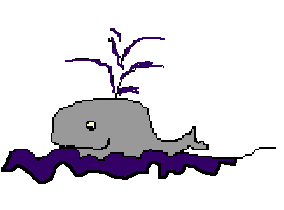
Solution to Ocean Pollution

Background Information
Many things have been learned about the ocean, the most significant is how important the sea is to our well-being and survival, and the necessity of ocean life to the health of the world's environment. The ocean greatly affects all living things, from the deep sea fish to the desert mouse.
We have also learned that the ocean is fragile. Oil spills, over fishing, and dumping garbage, chemicals, and radioactive substances have all diminished the health of the ocean.
The future of life in our oceans is in jeopardy.
Oil Spills
When it comes to mixing oil and water, oceans suffer from far more than an occasional devastating spill. Disasters make headlines, but hundreds of millions of gallons of oil quietly end up in the seas every year, mostly from non-accidental sources
Debris
Our trash kills. When odds and ends of life on land-- particularly plastics--end up in the sea, they pose hazards to marine life. Animals drown or strangle from getting tangled in discarded or lost fishing gear, or suffer and even die from eating plastics and other garbage.
Mining and Dumping
For thousands of years humans have viewed oceans as vast dumps for domestic, municipal, and industrial garbage--tons of sediments dredged from harbors and waterways, sewage sludge, toxic industrial by-products, and even low-level radioactive waste. These materials may never become evenly diluted into a weakened mixture, and ocean processes may even concentrate some materials. Land-based alternatives for disposal also pose problems.
Raw Sewage
Around the world, untreated sewage flows into coastal waters, carrying organic waste and nutrients that can lead to oxygen depletion, as well as disease-causing bacteria and parasites that require closing beaches and shellfish beds.
Global Warming
Obviously, climate has a big influence on plants and animals in the natural environment, on oceans, and on human activities, such as agriculture, water supplies, and heating and cooling. The effects of climate change depend upon how much change there is, how fast it occurs, and how easily the world can adapt to the new conditions.
Over Fishing
In many places, pressure against heavy fishing and public awareness of environmental problems have forced governments to limit or halt fishing until fish populations can recover. Over fishing transforms marine ecosystems and also costs people jobs and income
| Lesson Plan #6
|
Activities #6
Oil Pollution Dangerous Debris Smithsonian Ocean Plant Exhibit
|
| Printables | Additional Resources |